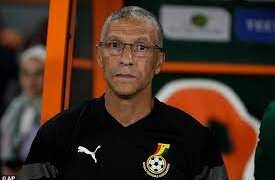There is “credible evidence” that Australian elite soldiers unlawfully killed 39 people during the Afghan war, a long-awaited report has found.
The Australian Defence Force (ADF) has released findings from a four-year inquiry into misconduct by its forces.
It said 19 current or former soldiers should be investigated by police over the killings of “prisoners, farmers or civilians” between 2009 and 2013.
The ADF blamed crimes on an unchecked “warrior culture” among some soldiers.
The inquiry – conducted by Major Gen Justice Paul Brereton – conducted interviews with more than 400 witnesses. It also found evidence that:
- Junior soldiers were told to get their first kill by shooting prisoners, in a practice known as “blooding”
- Weapons and other items were planted near Afghan bodies to cover up crimes
- An additional two incidents could constitute a war crime of “cruel treatment”
Afghanistan said it had been assured by Australia that it was committed to “ensuring justice”.
Samantha Crompvoets, an academic who carried out the initial research into the incidents, told the BBC they were “deliberate, repeated and targeted war crimes” and said she felt vindicated by the report.
What did the report find?
It said 25 special forces soldiers had taken part in unlawful killings directly or as “accessories”, across 23 separate incidents.
ADF chief General Angus Campbell said none of the incidents could be “described as being in the heat of battle”.
“None were alleged to have occurred in circumstances in which the intent of the perpetrator was unclear, confused or mistaken,” he told reporters on Thursday.
Gen Campbell said there was alarming evidence that some Special Air Service (SAS) soldiers had taken “the law into their own hands”.
“The report notes that the distorted culture was embraced and amplified by some experienced, charismatic and influential non-commissioned officers and their proteges, who sought to fuse military excellence with ego, elitism and entitlement,” he said.
The report said it would be a “gross distortion” to blame senior ADF command, saying the crimes were “commenced… and concealed at the patrol commander level”.
“Platoon commanders were encouraging or insisting junior soldiers execute prisoners to achieve their first kill, so it was that sort of pattern of behaviour of grooming these junior soldiers for, or initiating them into, the squadron – that’s what was very disturbing,” she told BBC World Service’s Newsday programme.
The inquiry was conducted behind closed doors, meaning few details have been reported until now.
What’s been the reaction?
Last week, Mr Morrison warned the report contained “difficult and hard news for Australians” about its special forces.
“It is the environment [within the ADF], it is the context, it is the rules, it is the culture and the command that sat around those things,” he said. “And if we want to deal with the truth of this, we have to deal with the truth of that.”
The office of Afghanistan’s President Ashraf Ghani said Mr Morrison had phoned to express his “deepest sorrow” over the findings. Afghanistan has not commented on the report.
Elaine Pearson, from Human Rights Watch, told the BBC: “This is a vindication – this is an acknowledgement that these crimes occurred.”
Dr Crompvoets said she had faced “huge resistance” when her initial report was leaked but had now been proved right.
“I was certainly criticised for being a female, a civilian, a feminist, that somehow I was trying to feminise defence,” she said.
“It wasn’t about me not understanding what it’s like to be at war,” she added. “It was quite evident there were fundamental things that had gone wrong.”
What happens next?
Last week, Mr Morrison said a special investigator would be appointed to consider prosecutions from information contained in the report.
Australian media reported that police investigations would be likely to take years, even before possible criminal trials.
Gen Campbell said one SAS squadron had been shut down, and it was the ADF’s responsibility to “set things right”.
The government said it would also establish an independent oversight panel to provide “accountability and transparency that sits outside of the ADF chain of command”.
Australia maintains an operation of around 400 soldiers in Afghanistan as part ongoing peacekeeping efforts with the US and other allies.
Have other countries faced allegations?
Earlier this year, the International Criminal Court (ICC) began investigating alleged war crimes by the US and others in the Afghan conflict.
The actions of the Taliban, the Afghan government and US troops since May 2003 are expected to be examined.
A 2016 report from the ICC said there was a reasonable basis to believe the US military had committed torture at secret detention sites operated by the CIA.
The report also said it was reasonable to believe the Afghan government had tortured prisoners and the Taliban had committed war crimes such as the mass killing of civilians. The UK is also investigating whether allegations





















































Comments 1